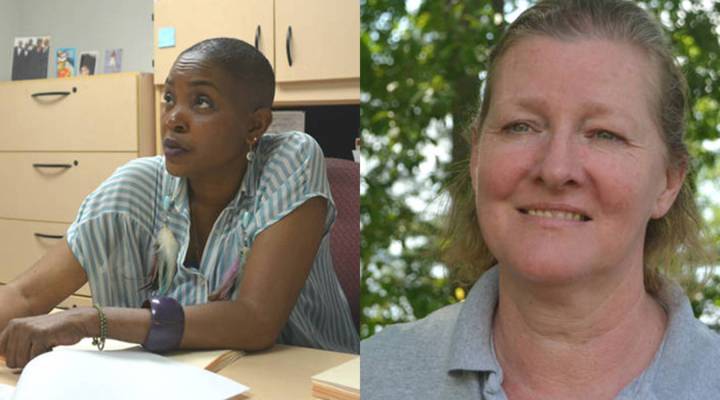
Welfare reform, through the eyes of two women

Twenty years ago next week President Bill Clinton signed into law a massive overhaul of the welfare system. The 1996 Personal Responsibility and Work Opportunity Reconciliation Act prioritized work over education and training, making it a lot harder for people on welfare to go to college. In order to qualify for cash assistance, recipients now have to do some form of work each week, and school only counts toward the full requirement for up to a year. Do the math, and most degrees take much longer.
So how did “work first” work out for women trying to lift themselves out of poverty by going to college? Listen to the stories of Elana Gamble and Patricia Edwards, two women with very different outcomes in the era of welfare reform.
Additional reporting by Caitlin Esch.
This story is excerpted from The Uncertain Hour podcast. Listen to the excerpt from the podcast in the player above and be sure to check out the whole episode of The Uncertain Hour. You can also explore welfare data for your own state.
There’s a lot happening in the world. Through it all, Marketplace is here for you.
You rely on Marketplace to break down the world’s events and tell you how it affects you in a fact-based, approachable way. We rely on your financial support to keep making that possible.
Your donation today powers the independent journalism that you rely on. For just $5/month, you can help sustain Marketplace so we can keep reporting on the things that matter to you.












